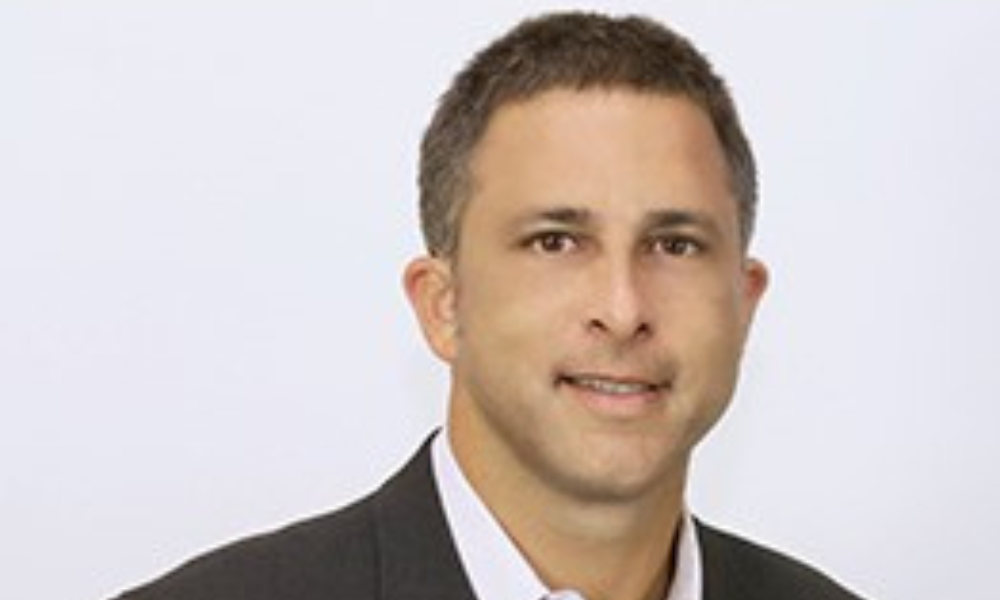Early on, owner-broker knew he wasn't a fit at his dad's diner

Before helping to serve up the American Dream of homeownership, Damon Germanides (pictured) slung hash to restaurant patrons. To be sure, he likes his current career as a mortgage broker decidedly better.
“My father had a restaurant here in in West Hollywood, and I worked for him after college for several years and got really tired of that business because restaurants are just such a tough, tough business,” he said. “And so I started back into Business School at USC [University of Southern California] at night while I still worked. I took a part-time program and then the 2001 tech bubble hit. I think it would probably be considered a mild type of a recession.”
As he prepared for graduating in 2002, he still wasn’t sure how he would apply his degree. And then he crossed paths with a friend from school: “A friend of mine that I’ve been with at business school was working at Countrywide in the warehouse lending division and he said ‘you know, given your skill sets, you might find mortgages to be an interesting business. You get a little bit of finance, and you get a little bit of the markets, you get to talk to people and socialize. Over time, you’d probably be OK at being a mortgage originator. And I said, ‘you know, I got nothing else going on here’. I didn’t get any job offers, so that’s how I fell into it.”
Stepping into the mortgage industry
So at 30 years of age, he would begin a new chapter. “I went to a small boutique mortgage bank out of Nevada that was very tech-forward at the time in what it was doing – it wound up blowing up. It was called Meridius Capital. It was an interesting time, but really, I cut my teeth in mortgage when I came back to LA after about a year. And I worked for a company called CS Financial and I worked with some of the top originators in the country at the time.”
He quickly found the benefits of having attended business school in his new line of work, he recalled. “One of the things that was very beneficial was that I was pretty analytical. So when the guidelines started changing to a more traditional way of looking at loans again – you know, cash flow analysis and all that – I had a pretty good understanding of it. So I became the person who figured out the harder loans.”
He’d partner up with his friend, Chris Furie, by 2010, to hang his own shingle. Together, they would launch Beverly Hills, Calif.-based Insignia Mortgage Inc. “We found our niche,” he said.
Great Recession aftermath was still felt
That niche involves primarily jumbo and non-QM loans, he said. After all, the base is in Beverly Hills, one of the nation’s most expensive ZIP codes. As such, Insignia deals in more complicated loans with less of a focus on volume compared to many of their counterparts, he explained. Such dynamics have been advantageous in keeping the company in check from growing too fast, he noted, particularly in its nascent period on the heels of the Great Recession.
“We’ve always been small – a lean-and-mean model,” he said. “When you go through something like 2008 and get your clock cleaned like everyone did, you tend to be more risk averse. One of the limitations of our model was we work with smaller banks, credit unions and privately owned banks that aren’t designed to take on massive amounts of volume. We were one of the few brokers approved to deliver loans to these places, but the caveat was that there were limits to how many loans they would want.”
As a result, the company has grown steadily: “There was a period of time where we could’ve hired many, many people because the products we had were so good,” Germanides said. “But the funder of the loan – the bank or credit union funding the loan – would say ‘we’re good with your volume.’ This has really served us well because by not having a huge operation and a ton of fixed costs, operationally we’re hanging in there versus a lot of companies where you’re seeing layoffs.”
Despite the lean-and-mean model, his volume is far from shabby – $311 million across 140 units in 2021 and $285 million over 104 units last year. That performance has helped him secure the 27th ranking nationally among brokers. And he’s not alone in being nationally ranked, either: “I’m very proud of our little company,” he said. “We have four of the top 25 brokers in the country who work for this office.”
Those restaurant days are long past.



